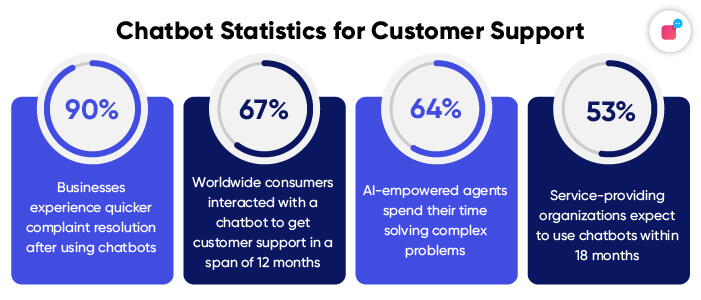Artificial intelligence (AI) is rapidly transforming the marketing field, offering businesses new ways to personalize their messaging, analyze customer data, and create more effective marketing campaigns.
By using machine learning algorithms and predictive analytics, companies can better understand customer behaviors, preferences, and needs, and tailor their marketing efforts accordingly.
In this blog post, we’ll explore some real-world examples of how businesses are using AI to improve their marketing efforts.
By examining these case studies, we’ll gain a better understanding of the potential benefits of AI in marketing, as well as the challenges and opportunities that this technology presents.
Whether you’re a small business owner or a marketing professional, understanding how AI is being used in marketing can help you stay ahead of the curve and make more informed decisions about your marketing strategy.
So let’s dive in and explore some of the most compelling case studies of AI in marketing.
1. How Netflix Uses AI to Deliver a More Personalized Customer Experience
Netflix is perhaps one of the best-known examples of how AI is being used in marketing.
The streaming giant has long relied on data analysis and machine learning to recommend content to its users. This personalized recommendation system has been a major driver of the company’s success.
Netflix’s AI-powered recommendation system analyzes a wide variety of data points, including a user’s viewing history, search history, and ratings, as well as information about the content itself, such as its genre and director.
Using this data, the system can generate personalized recommendations that are tailored to each user.
The benefits of AI in marketing have been significant
According to Netflix, its recommendation system is responsible for 80% of the content that users watch on the platform.
This has helped to improve customer retention and engagement, as well as drive new sign-ups. The company estimates that its recommendation system has saved it over $1 billion in customer retention costs.
But the benefits of AI in marketing go beyond just recommendations
Netflix is also using AI to optimize its content creation process.
By analyzing viewer data and identifying patterns in what users are watching, the company can make more informed decisions about what types of content to produce, and how to market that content to its users.
Overall, Netflix is a powerful example of how AI can transform marketing.
By using machine learning to understand its users better, the company has improved customer engagement, driven sales, and stayed ahead of the competition.
2. How Sephora Uses AI to Transform the Beauty Industry
Sephora, the cosmetics retailer, is another excellent example of how AI can improve customer experience.
The company has implemented a chatbot on its website and mobile app that uses machine learning algorithms to personalize the customer experience and provide support and recommendations to shoppers.
The chatbot called the Sephora Virtual Artist, uses facial recognition technology to help customers try on different makeup products and experiment with different looks.
Users can upload a photo of themselves to the app, and the chatbot will use machine learning algorithms to analyze their features and provide personalized makeup recommendations.
In addition to the Virtual Artist, Sephora has also implemented an AI-powered chatbot that can answer customer questions and help shoppers find the products they’re looking for.
The chatbot is designed to mimic the experience of talking to a real sales associate and uses natural language processing to understand customer inquiries and respond appropriately.
The benefits of these AI-powered tools have been significant
By providing personalized recommendations and support, Sephora has been able to improve customer satisfaction and drive sales.
The company reports that customers who engage with the Virtual Artist are more likely to make a purchase and that the chatbot has helped to reduce the number of support inquiries that its customer service team receives.
Overall, Sephora’s use of AI in marketing demonstrates the potential for these technologies to transform the customer experience.
By providing personalized recommendations and support, companies can improve customer satisfaction, drive sales, and build long-term customer loyalty.
Suggested Reading: 7 Free Online AI Chatbots to Improve Your Customer Service
3. How Coca-Cola Uses AI to Deliver More Personalized Marketing Campaigns
Coca-Cola is another company that has embraced the power of AI in its marketing efforts.
One notable example is the company’s use of machine learning to optimize its product packaging and distribution.
Coca-Cola worked with a data analytics firm to create an AI system that would analyze sales data and identify patterns in customer preferences.
Using this data, the system was able to recommend specific product packaging and distribution strategies for different markets and demographics.
The results of this approach were impressive.
Coca-Cola was able to improve its sales and distribution efficiencies by up to 30%, resulting in significant cost savings and increased profits.
The company was also able to tailor its marketing efforts more effectively, using data-driven insights to develop more targeted campaigns and messaging.
In addition to its work on product packaging and distribution, Coca-Cola has also used AI to develop a virtual assistant that can help customers find the products they’re looking for and answer common questions.
The virtual assistant is available on the company’s website and mobile app and uses natural language processing to understand customer inquiries and respond appropriately.
By embracing AI in its marketing efforts, Coca-Cola has been able to stay ahead of the competition and drive significant business results.
By using machine learning to better understand customer preferences and optimize its operations, the company has been able to improve its sales, reduce costs, and build a stronger brand.
4. How Unilever Uses AI to Build Brands and Drive Sales
Unilever is a global consumer goods company that has also been at the forefront of using AI in its marketing efforts.
The company has implemented several AI-powered initiatives to improve its customer engagement and marketing ROI.
One of the most notable examples is the company’s use of machine learning to optimize its social media advertising.
Unilever worked with a digital marketing firm to create an AI system that could analyze data from social media platforms and identify the most effective advertising strategies for different demographics and markets.
Using this approach, Unilever was able to improve its advertising performance significantly, with some campaigns achieving up to a 50% increase in engagement and click-through rates.
The company was also able to optimize its advertising spend, reducing costs while improving results.
Unilever has also used AI to develop a personalized shopping assistant for its customers
The assistant, called “Peggy,” uses natural language processing to understand customer inquiries and provide personalized product recommendations and support.
By leveraging AI in its marketing efforts, Unilever has been able to improve its customer engagement, increase sales, and build stronger relationships with its customers.
By optimizing its advertising and providing personalized support, the company has been able to drive significant business results while improving the customer experience.
AI in Marketing: Key Takeaways from Real-World Case Studies
These case studies demonstrate the significant impact that AI can have on marketing efforts.
By leveraging data-driven insights and machine learning algorithms, companies like Netflix, Sephora, Coca-Cola, and Unilever have been able to optimize their marketing strategies and drive significant business results.
However, it’s important to note that AI is not a magic bullet for marketing success.
These companies were able to achieve significant results because they invested time and resources into building and implementing effective AI-powered systems.
It takes careful planning, dedicated resources, and ongoing monitoring and analysis to ensure that an AI system is delivering the desired results.
That being said, the potential benefits of AI in marketing are clear.
By providing more personalized, targeted experiences for customers and optimizing advertising and distribution strategies, companies can improve their ROI and build stronger relationships with their customers.
As AI technology continues to develop and evolve, we can expect to see even more innovative applications in the world of marketing.
By staying up to date on the latest trends and best practices, companies can stay ahead of the competition and drive continued success.

Ali is a digital marketing blogger and author who uses the power of words to inspire and impact others. He has written for leading publications like Business2Community, Inc. Magazine, and Marketing Profs. When not writing, he enjoys spending time with his family.

